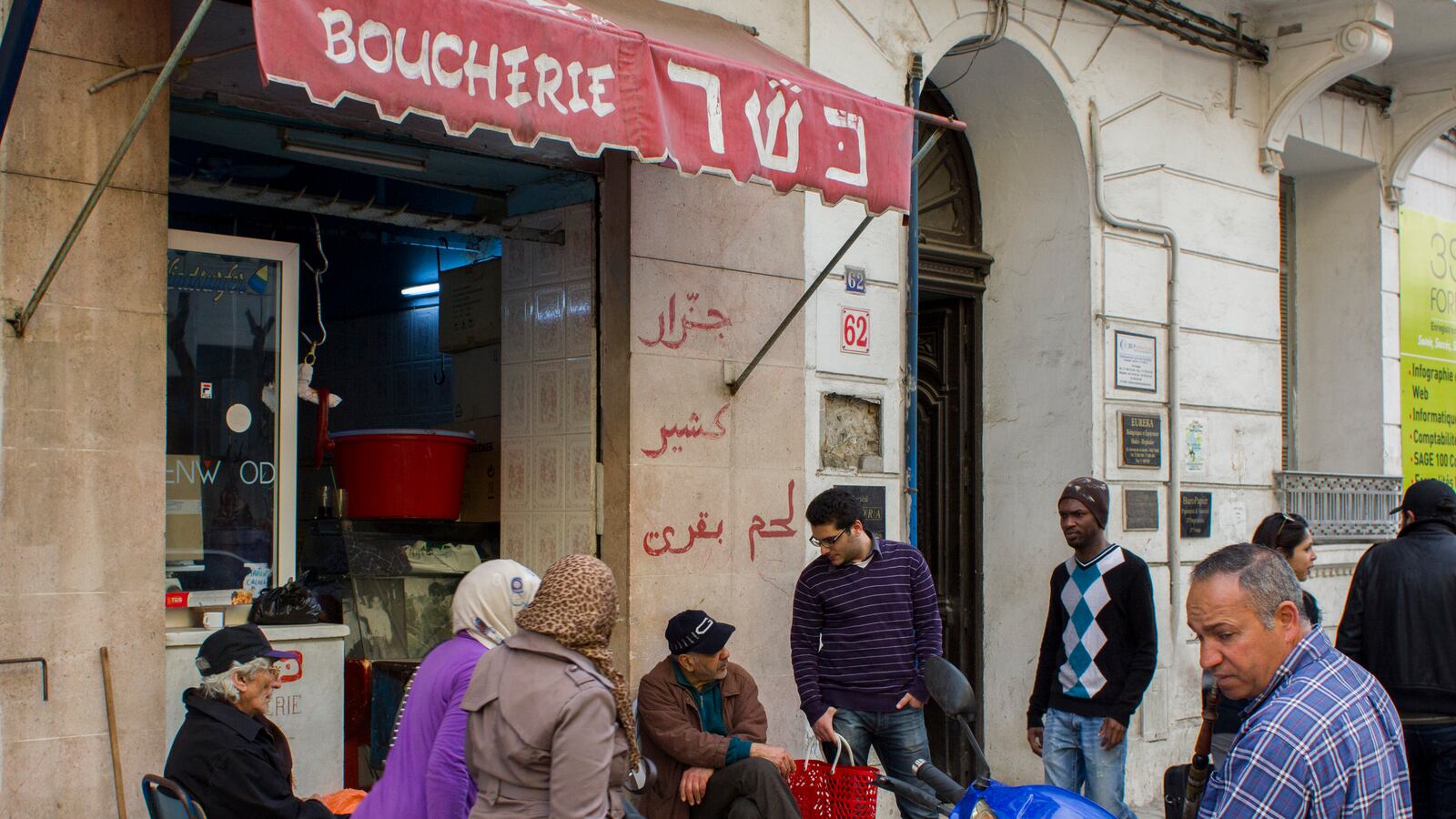Daniel Cohen packs the taxi trunk with a jug of canola oil, a week’s worth of clothes, and a pair of dress shoes. His wife and 10 kids have already made the 30-minute trip from their apartment in Tunis to their 3-bedroom home in the waterfront suburb of La Goulette, where Cohen and his family will spend the Passover holiday that starts on Monday.

Cohen is something of an all-purpose religious leader in the dwindling community of 300 Jews here in Tunisia’s capital. During the week, he’s a teacher at the region’s only Jewish school (enrollment: 27) in downtown Tunis, and on the weekend he’s the unofficial rabbi at the only synagogue in La Goulette, a town once known for its thriving Jewish population that filled 13 synagogues.
Having spent the week overseeing production of the Tunis’s kosher-for-Passover food, Cohen is returning Friday afternoon to lead his congregation, all 10 who show up, in Sabbath services.
He strikes up conversation with the cab driver, the gold trim of his yarmulke, the Jewish head covering, slightly exposed from under the back of his Nike baseball cap.
Later, in French, he explains that he prefers to keep his yarmulke hidden.
“Tunisians don’t understand Jews,” he says. “All they know is Israel.”
Following the 2011 revolution, the moderate Islamist-led Tunisian government pledged to protect its dwindling Jewish community, which once numbered more than 100,000. But the recent desecration of several Jewish cemeteries is only the latest incident to spark concern over the long-term viability of this storied Jewish community.
The first mass exodus began in 1956, with Tunisia’s independence from France coinciding with a surge in Arab nationalism. Over the next 10 years, following the Bizerte crisis (1961) with France and the Six-Day War (1967), tens of thousands fled the country amid anti-Jewish riots.
Today Tunisia is home to about 1,000 Jews, most of whom reside in the isolated community on the southern coastal island of Djerba.
In Tunis, the privately run Jewish Community in Tunisia, housed in a former Jewish school downtown, has become the lifeline for observant Jews preparing for the Passover holiday, selling kosher-for-Passover Tunisian wine, spices, and baked goods (with an almond or potato base), as well as imported matzo.
“Look, we don’t have much,” says Brigitte Hayoun, who staffs a table in the former school’s auditorium strewn with eight types of Tunisian-grown spices specially ground according to Passover requirements. “There’s just the minimum. If we were in Paris, there would be the little things.”

Two kosher butcher shops are the only vestiges of the kosher markets, grocers, restaurants, and even a matzo factory that once served the community’s dietary restrictions.
Last year the city’s only remaining kosher winery closed up shop as its owner went into retirement. Scrambling to find a replacement in time to put in an order for the coming holiday, Cohen found a producer who agreed to allow him to oversee production of a kosher batch for Passover.
But the challenges facing the future of a Tunisian Jewish community are most apparent among the younger generation—or lack thereof. Among his eight primary school classmates, 24-year-old Moshe Uzan says that only one other remains in Tunisia. The rest left for France or “abroad,” he says, a Tunisian Jewry code word to avoid association with Israel.
Uzan spent the previous 10 years studying in Paris, Israel, and New York City, returning to Tunis this winter to start a real estate business focused on managing expat Tunisians’ property.
“The contract with my parents is like this: I can go abroad, but I have to come back for holidays,” he says. “Sukkoth, I missed it twice. Passover, I never missed it.”
For the older generation, the community here is inextricably linked to Tunisian society and its postrevolution ailments, including an unemployment rate above 16 percent.

Roger Bismuth, the president of the Jewish Community of Tunisia, has a self-imposed rule against talking to foreign journalists about Tunisian Jews.
“I am not a minority in my country. I am a Tunisian,” Bismuth says. “I am president of the Jewish community, but I refuse to talk about the Jews. The Jews face the problems of the country.”
Hayoun, selling kosher goods for Passover at the Jewish Community offices, says she has no plans to leave Tunisia.
“For now, we’re here,” says Hayoun, whose son returned from Paris for the holiday. “Tomorrow, we don’t know.”






